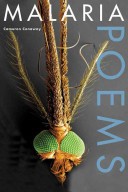
Any poetry lovers out there? I have always had a deep appreciation for the skill with which poets create these compact, imaginative, and lovely works of art. They can tell an entire story, sum up a lifetime, and express powerful emotions all in a few lines. I often rely on a good poetry quote when I fall short of words.
Poetry also plays an enormous role in society, of course. It can start conversations and draw attention to issues in such unique ways as to bring about profound cultural shifts.
Last week, I was doing some research on the history of malaria and Sir Ronald Ross for an upcoming presentation. Sir Ross was born in India in 1857. He studied bacteriology and public health before entering the Indian Medical Service in 1881. While working in Secunderabad, he discovered malaria parasites in the stomach tissue of an anopheline mosquito that had fed on a patient with malaria. He went on to prove the role of Anopheles mosquitoes in the transmission of malaria parasites in humans. For this work, he was awarded the Nobel Prize in Medicine in 1902. The CDC has a nice summary of his life and enormous contributions to tropical medicine.
Not only was Sir Ross a devoted malaria researcher, it turns out he was quite a Renaissance man, with interests in mathematics, music, art, literature and poetry. Shortly after his breakthrough, he wrote this poem which really reveals his passion and the immense implications of his discovery for humanity.
This day relenting God
Hath placed within my hand
A wondrous thing; and God
Be praised. At His command,
Seeking His secret deeds
With tears and toiling breath,
I find thy cunning seeds,
O million-murdering Death.
I know this little thing
A myriad men will save.
O Death, where is thy sting?
Thy victory, O Grave?

I got lost in the moment (and the hypnotic activity known as web browsing) and started to look for other literary examples. As I investigated further, I was amazed to find out there is actually an entire volume of poetry devoted to malaria.
Poet Cameron Conaway received support for his book from a Wellcome Trust’s Arts Award to help bring attention to this devastating illness. You can learn more about Mr. Conaway’s inspiration for this work at NPR’s goats and soda. Fittingly, The Wellcome Trust also provided funding to preserve the papers of Sir Ronald Ross. They can be found on The London School of Tropical Medicine and Hygiene web site.
I still don’t have the work done for my presentation finished but that’s OK. According to Goethe, “One ought, every day at least, to hear a little song, read a good poem, see a fine picture, and, if it were possible, to speak a few reasonable words.”
Julie Richards, President
American Travel Health Nurses Association
